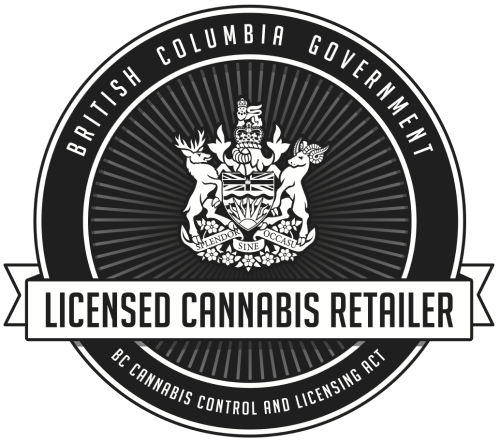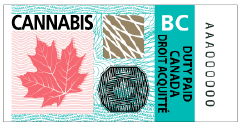Cannabis can be harmful to your long-term mental and physical health.
Last updated: January 23, 2026
What is cannabis?
Cannabis products come from the cannabis plant. It can come in many forms: dried leaf and flower, oils and concentrates such as pressed resin (hashish or hash), creams for the skin, things you eat and products you drink.
Cannabis contains hundreds of chemical substances including over 100 types of cannabinoids. The two main cannabinoids are tetrahydrocannabinol (THC) and cannabidiol (CBD). THC and CBD are both psychoactive (they affect how we feel, think and behave) but act in different ways. THC can produce an intoxicating effect, commonly referred to as feeling ‘high’, while CBD does not typically cause intoxication or impairment but does affect the mind and body in other ways. Some people use cannabis for medicinal reasons, while others use it recreationally. It is most often smoked, vaped, eaten or drank as a liquid.
What are the effects of cannabis?
Know the impacts of cannabis on your health.
The same cannabis product can affect people differently. Depending on the product and the person, short-term effects can include feeling a sense of bliss, relaxation, heightened senses, sleepiness, confusion, anxiety, fear, and panic. The more you use the more intense these effects and the more your regular functioning is impacted or impaired.
Harms associated with use include; motor-vehicle crashes; worsening or triggering of mental health problems; cannabis use disorder; and some reproductive, and digestive conditions. Mental health problems can include psychosis and schizophrenia (particularly in those with a family history); depression; anxiety; and suicidal behaviours. There is evidence to suggest long-term cannabis use is a risk factor for some lung and heart issues.
Using too much cannabis can lead to cannabis poisoning, which can cause chest pain, fast heartbeat, severe nausea/vomiting, a psychotic episode, difficulty breathing, and severe anxiety and/or panic attacks.
The effects of cannabis products might be different based on how much THC is in it, how much a person takes and how they use it.
Please seek medical attention if someone is experiencing any severe symptoms after using cannabis or any drug.
Smoking
- Smoking cannabis results in relatively quick effects, usually within 5-10 minutes, and these effects may last for many hours.
- Smoking cannabis can cause health risks, including an increased likelihood of experiencing coughing, producing phlegm, wheezing and difficulty breathing.
- Smoking cannabis can expose others to second hand smoke, potentially leading to health harms.
- Using cannabis and tobacco together increases risks of heart and lung problems. Breathing in deeply or holding your breath when smoking increases risk.
Vaporizing or Vaping
- While vaping cannabis is considered safer for lung health than smoking cannabis, vaping does have risk.
- Vaping may be more efficient at delivering THC to the blood and this can increase impairment.
- Using strong amounts, like those found in vape pens, can increase the risk of experiencing harmful effects.
Eating or Drinking
- Ingesting cannabis takes longer to show effects (30 minutes to two hours), and results in a longer period of feeling high (six -12 hours or more). This can result in accidentally taking more than intended.
Cannabis poisoning
Cannabis poisoning is a concern for children and youth as they may mistake edibles for candy or sweets. Children being in hospital because of cannabis poisoning has increased since cannabis became legal. Symptoms may include vomiting, confusion, unresponsiveness, slurred speech, drowsiness, slowed breathing or in rare cases, seizures. Act immediately if a child in your care may have consumed cannabis and is acting unusual or looks ill. Call 1-844-POISON-X or 911.
Choose legal products
- Cannabis leaf and flower, cannabis oil, cannabis plants and cannabis seeds were legalized in October 2018. Edibles, extracts and creams became legal in October 2019.
- Adults aged 19 and older can smoke or vape cannabis in public spaces where tobacco smoking and vaping are allowed.
- Legal cannabis is sold exclusively at age-restricted government-run stores or licensed private retailers.
- Legal cannabis retailers must display the B.C. Government Licensed Cannabis Retailer sign and all legal products must display the BC duty stamp.


- There are many online stores that aren’t regulated by the B.C. government. If someone selling cannabis only takes payment by e-transfer or cash, this may be an unregulated seller.
- ‘Spice’, ‘K2’ and ‘fake weed’ are illegal lab-made cannabinoids that are associated with severe health problems and can be life-threatening. Some synthetic cannabinoids have potential or current medical uses. These are only available by prescription.
- Learn more about what is legal in B.C.
Who is at higher risk?
Children and youth
- The brain continues to develop until we are in our mid-twenties. Youth who initiate cannabis use early in adolescence, use frequently and/or use high potency product have increased risk of negative outcomes including: injury, mental health issues, academic difficulties, problems with other substances and suicide behaviours.
- Children are at particular risk for accidental ingestion.
People with a family history of mental illness
- Cannabis use increases the risk of developing certain mental illnesses including psychosis, schizophrenia and suicidal behaviours. Having a family history of mental illness increases this risk.
People who are pregnant or wanting to become pregnant or are breast/chest feeding
- There is growing body of medical research which suggests that the use of cannabis during pregnancy may be associated with the risk of low birth weight, preterm labour, still-birth and may also negatively impact the developing baby’s brain. There is no known safe amount of cannabis use in pregnancy and when breast/chest feeding. Learn more about cannabis and the perinatal period.
How to reduce risk?
The only way to avoid the risks of cannabis use is not to use at all. If using cannabis, follow these tips to lower the risks:
- Starting cannabis use when young increases the risk of poor health and social outcomes throughout life. If choosing to use cannabis, delay starting as long as possible.
- Use products with low THC and high CBD content.
- Use only legal, regulated products.
- Avoid harmful practices such as inhaling deeply or breath-holding.
- Avoid frequent or intensive use and don’t use too often.
- Don’t use with alcohol or tobacco.
- Don’t use if you are planning to drive or operate other machinery.
- Don’t use if you are pregnant or breast/chest feeding.
- Don’t use if you are at risk for mental illness.
What is medical cannabis?
Medical cannabis is the use of cannabis that has been prescribed by a health professional. The research on medical uses is limited and evolving but some patients are prescribed cannabis to manage symptoms like pain, nausea and lack of appetite. If you have questions about whether medical cannabis could help you, speak to your health care provider.
Where can I seek help?
If you are concerned about yourself or a loved one, you can contact the Alcohol and Drug Information and Referral Line toll-free at 1-800-663-1441 or in the lower mainland at 604-660-9382.
Resources
- Fraser Health MHO Cannabis Recommendations: Recreational Cannabis Access and Use. This document supports consistent partner engagement on a public health approach to cannabis policy, reflecting Fraser Health Medical Health Officer evidence-informed recommendations.
- Fraser Health: Youth and cannabis
- Kelty Mental Health Resource Centre – Cannabis and Youth Overview and Resources; Substance use and youth Podcast
- McCreary Society: Age Matters: Understanding and Supporting Healthy Development for Youth
- The Center for Addiction and Mental Health: Lower risk cannabis use guidelines
- Health Canada: Health effects of cannabis: Recreational Cannabis Access and Use. This document supports consistent partner engagement on a public health approach to cannabis policy, reflecting Fraser Health Medical Health Officer evidence-informed recommendations.
- Society of Obstetricians and Gynaecologists of Canada: Cannabis and pregnancy
- Center or excellence for women’s health: Sex, gender and cannabis hub
- Province of B.C.: Cannabis
- Cannabis and Psychosis: Explore the link
- Canada’s Lower-Risk Cannabis Use Guidelines for Psychosis: LRCUG-PSYCH

